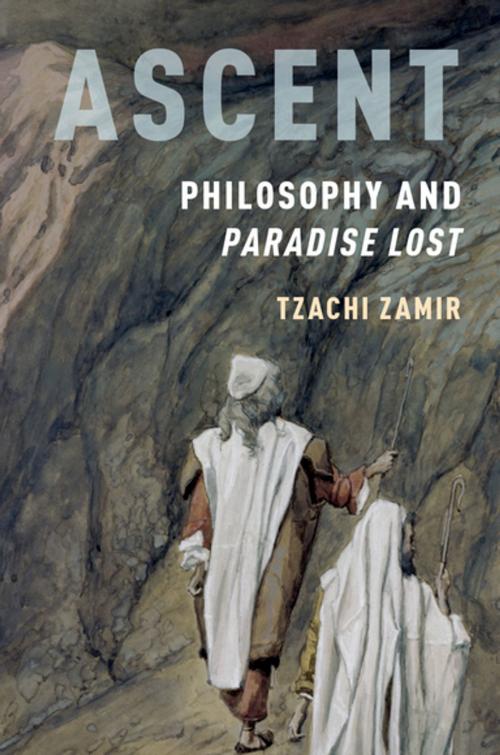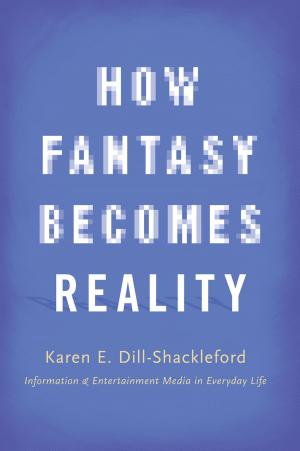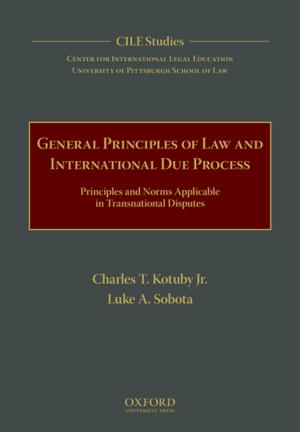Ascent
Philosophy and Paradise Lost
Nonfiction, Religion & Spirituality, Christianity, Christian Literature, Philosophy, Ethics & Moral Philosophy, Fiction & Literature, Literary Theory & Criticism| Author: | Tzachi Zamir | ISBN: | 9780190695101 |
| Publisher: | Oxford University Press | Publication: | November 1, 2017 |
| Imprint: | Oxford University Press | Language: | English |
| Author: | Tzachi Zamir |
| ISBN: | 9780190695101 |
| Publisher: | Oxford University Press |
| Publication: | November 1, 2017 |
| Imprint: | Oxford University Press |
| Language: | English |
Paradise Lost has never received a substantial, book-length reading by a philosopher. This, however should surprise no one, for Milton himself despised philosophers. He associated philosophy with deceit in his theological writings, and made philosophizing into one of the activities of fallen angels in hell. Yet, in this book, philosopher and literary critic Tzachi Zamir argues that Milton's disdain for their vocation should not prevent philosophers from turning an inquisitive eye to Paradise Lost.Because Milton's greatest poemconducts a multilayered examination of puzzles that intrigue philosophers, instead of neatly breaking from philosophy, it maintains a penetrating rapport with it. Paradise Lost sets forth bold claims regarding the meaning of genuine knowledge, or acting meaningfully, or taking in the world fully, or successfully withdrawing from inner deadness. Other topics touched upon by Milton involve some of the most central issues within the philosophy of religion: the relationship between reason and belief, the uniqueness of religious poetry, the meaning of gratitude, and the special role of the imagination in faith. This tension-disparaging philosophy on the one hand, but taking up much of what philosophers hope to understand on the other-turns Milton's poem into an exceptionally potent work for a philosopher of literature. Ascent is a philosophical reading of the poem that attempts to keep audible Milton's anti-philosophy stance. The picture of interdisciplinarity that emerges is, accordingly, neither one of a happy percolation among fields ('philosophy', 'literature'), nor one of rigid boundaries. Overlap and partial agreement clash against contestation and rivalry. It is these conflicting currents which Ascent aims to capture, if not to reconcile.
Paradise Lost has never received a substantial, book-length reading by a philosopher. This, however should surprise no one, for Milton himself despised philosophers. He associated philosophy with deceit in his theological writings, and made philosophizing into one of the activities of fallen angels in hell. Yet, in this book, philosopher and literary critic Tzachi Zamir argues that Milton's disdain for their vocation should not prevent philosophers from turning an inquisitive eye to Paradise Lost.Because Milton's greatest poemconducts a multilayered examination of puzzles that intrigue philosophers, instead of neatly breaking from philosophy, it maintains a penetrating rapport with it. Paradise Lost sets forth bold claims regarding the meaning of genuine knowledge, or acting meaningfully, or taking in the world fully, or successfully withdrawing from inner deadness. Other topics touched upon by Milton involve some of the most central issues within the philosophy of religion: the relationship between reason and belief, the uniqueness of religious poetry, the meaning of gratitude, and the special role of the imagination in faith. This tension-disparaging philosophy on the one hand, but taking up much of what philosophers hope to understand on the other-turns Milton's poem into an exceptionally potent work for a philosopher of literature. Ascent is a philosophical reading of the poem that attempts to keep audible Milton's anti-philosophy stance. The picture of interdisciplinarity that emerges is, accordingly, neither one of a happy percolation among fields ('philosophy', 'literature'), nor one of rigid boundaries. Overlap and partial agreement clash against contestation and rivalry. It is these conflicting currents which Ascent aims to capture, if not to reconcile.















